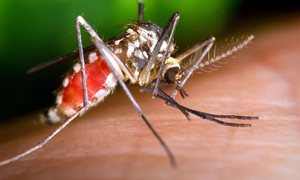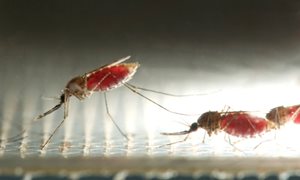
Rosanne van Deuren, a PhD student under the supervision of Alexander Hoischen, theme Infectious diseases and global health, published a study that shows that rare and common genetic variants together shape our immune response and highlight the inter-individual differences of it. Moreover, the presented framework and example can help others in similar studies – and offers novel ways to analyse and visualize complex data sets. This is yet another example of the great value of cohorts established in the human functional genomics project, which is co-coordinated by Mihai Netea. The current study is published in Genome Medicine.
Background
The interleukin (IL)-1 pathway is primarily associated with innate immunological defense and plays a major role in the induction and regulation of inflammation. Both common and rare genetic variation in this pathway underlies various inflammation-mediated diseases, but the role of rare variants relative to common variants in immune response variability in healthy individuals remains unclear.
Methods
We performed molecular inversion probe sequencing on 48 IL-1 pathway-related genes in 463 healthy individuals from the Human Functional Genomics Project. We functionally grouped common and rare variants, over gene, subpathway, and inflammatory levels and performed the Sequence Kernel Association Test to test for association with in vitro stimulation-induced cytokine responses; specifically, IL-1β and IL-6 cytokine measurements upon stimulations that represent an array of microbial infections: lipopolysaccharide (LPS), phytohaemagglutinin (PHA), Candida albicans (C. albicans), and Staphylococcus aureus (S. aureus).
Results
We identified a burden of NCF4 rare variants with PHA-induced IL-6 cytokine and showed that the respective carriers are in the 1% lowest IL-6 producers. Collapsing rare variants in IL-1 subpathway genes produces a bidirectional association with LPS-induced IL-1β cytokine levels, which is reflected by a significant Spearman correlation. On the inflammatory level, we identified a burden of rare variants in genes encoding for proteins with an anti-inflammatory function with S. aureus-induced IL-6 cytokine. In contrast to these rare variant findings which were based on different types of stimuli, common variant associations were exclusively identified with C. albicans-induced cytokine over various levels of grouping, from the gene, to subpathway, to inflammatory level.
Conclusions
In conclusion, this study shows that functionally grouping common and rare genetic variants enables the elucidation IL-1-mediated biological mechanisms, specifically, for IL-1β and IL-6 cytokine responses induced by various stimuli. The framework used in this study may allow for the analysis of rare and common genetic variants in a wider variety of (non-immune) complex phenotypes and therefore has the potential to contribute to better understanding of unresolved, complex traits and diseases.
Related news items

Grants for research on magnesium deficiency and malaria Vidis for Felix Hol and Jeroen de Baaij
1 July 2022 Radboudumc researchers Jeroen de Baaij and Felix Hol both receive an NWO Vidi grant for their research, respectively on magnesium deficiency in type 2 diabetes and on malaria. go to page
Field research on malaria vaccine offers unexpected surprise
23 May 2022Field research on the effectiveness of a malaria vaccine, came up with unexpected results for an international group of researchers including Benjamin Mordmüller of Radboudumc. The vaccine evokes a broader response against malaria proteins than there are in the vaccine.
go to page
Rubicon grants awarded to three RIMLS researchers
19 April 2022Three researchers have received Rubicon funding from NWO/ZonMw. This will enable Elke Muntjewerff, Laura de Vries and Laurens van de Wiel to do research at a foreign research institute for the next two years.
go to page

